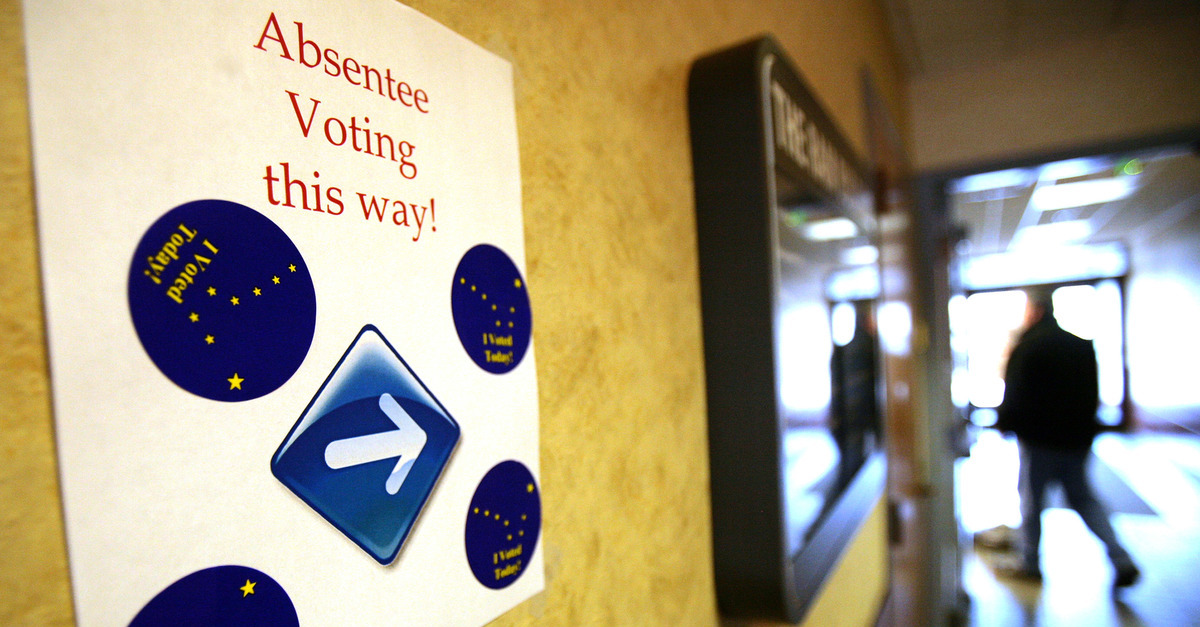
The Eleventh Circuit Court of Appeals ruled against Alabama on Thursday in a case about voting rights during the novel coronavirus pandemic.
The Yellowhammer State wasn’t backing down from a federal judge’s order throwing out its multiple attempts to make absentee voting more difficult upcoming elections. Alabama attempted to require absentee voters to produce copies of identification records and notarized ballots, and as well as essentially prohibiting curbside voting.
A group of Americans over age 65 with health conditions took issue with that, claiming that the requirements placed them at particular risk of contracting COVID-19. U.S. District Judge Abdul K. Kallon sided with the plaintiffs, calling Alabama’s arguments “underwhelming,” and pointing out that creating extra health risks for already at-risk voters during a global pandemic was unsafe and unnecessary. Following Judge Kallon’s ruling, the Alabama Attorney General’s Office appealed to the 11th Circuit, seeking an emergency stay of Judge Kallon’s order. The Circuit Court also sided with plaintiffs, refusing to allow Alabama to continue its practices pending a full appeal of Judge Kallon’s ruling.
The request for a stay proceeded before Chief Judge William H. Pryor, Jr., and Circuit Judges Robin S. Rosenbaum and Britt C. Grant. Judges Pryor and Rosenbaum wrote that it was “easy to see why the scale weighs in Plaintiffs’ favor for curbside voting.” The injunction, the judges said, “does not require anything” from Alabama other than simply complying with election law. In the midst of a public health emergency, wrote the court, any considerations favoring Alabama are “light when compared to forcing high-risk Alabamians to vote in-person inside a polling place in contravention of the CDC’s and Alabama’s recommendation to minimize in-person interactions.”
The court used blunt language in assessing just what it thought of Alabama’s argument:
Appellants argue that the photo ID and witness requirements impose only a “little bit of work” on Alabamian voters. That misperceives the burden. The burden here is not the finding of two people or a notary to witness a signature or the finding of a location to copy one’s photo ID. Instead, the burden is tied to the fact that Plaintiffs and those similarly situated must risk death or severe illness to fulfill Alabama’s absentee voter requirements and, therefore, to exercise their right to vote.
The court elaborated, saying that in light of the pandemic, the “risk isn’t comparable to the normal risk” associated with leaving home.
“Sure, anyone may risk getting hit by a bus on the way to a polling station,” continued the opinion, but Alabama’s “failure to acknowledge the significant difference between leaving one’s home to vote in non-pandemic times and forcing high-risk COVID-19 individuals to breach social-distancing and self-isolation protocols so they can vote reflects a serious lack of understanding of or disregard for the science and facts involved here.”
Judge Grant issued a separate concurrence writing that he had “serious concerns” about Judge Kallon’s order, “ which is dramatic both in its disregard for Alabama’s constitutional authority and in its confidence in the court’s own policymaking judgments.” Judge Grant explained that he was still voting against a stay – but that his reasoning was grounded in the question of standing.
“It is uncertain,” wrote the judge, “that the proper parties have appealed the order’s remarkable revisions to the State’s absentee ballot rules for its upcoming primary election…”.
[Image via Eric Engman/Getty Images]